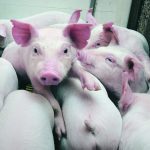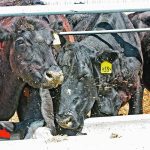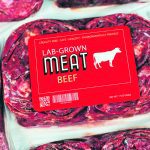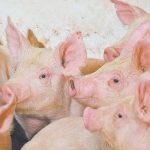Politicians in the EU discuss the potential for a ban on use of farmland to produce livestock feedgrains
WINNIPEG — Pigs once ate a lot of slops. Today, feeding pigs human food waste is banned in some countries and heavily restricted in others. That would need to change in order to create “circularity in food production,” according to Dutch swine nutritionist Alfons Jansman of Wageningen University. European consumers and politicians are beginning to […] Read moreTag Archives Animal Nutrition Conference of Canada

Feed sector worries as regulations increase
WINNIPEG — Livestock feeding is facing more sticks and fewer carrots these days, says the executive director of the Animal Nutrition Association of Canada. The widespread perception that cattle and other farm animals cause climate change and antimicrobial resistance problems has led to a hardening of government’s approach to the industry. “They look at livestock […] Read more

Hog industry encouraged to focus more on nutrition
Some basic areas of pig nutrition are still poorly understood, Prairie Swine Centre nutrition researcher Dan Columbus told the Animal Nutrition Conference of Canada. “Research is very hard to do in sows. It takes a long time. It’s expensive,” said Columbus, while explaining why he thinks sow diet formulation is so crudely done. “Overall the […] Read more

Water-infused feed enhances feedlot results
A new study at the U of S determines that water in the ration might be an effective binder for even feed distribution
Glacier FarmMedia – New research from the University of Saskatchewan could lead to reduced days on feed for cattle in feedlots. The secret may be as simple as adding water to the ration. Catherine Seidle, an animal science masters student, led the study and presented her findings May 15 at the Animal Nutrition Conference of […] Read more
Biofuel boom may help drive down feed prices
Glacier FarmMedia – Food and feed are the main sources of global demand for crops, but climate-related policies could tip that apple cart. Governments are making legislative overtures to boost production of biofuel. In Canada, that includes the Canadian Clean Fuels Regulation, which lays out rules for fuel production and aims to encourage development of […] Read more

Lab-grown meat not seen as threat
WINNIPEG — There was lots of chatter but little fear about “lab meat” at the Animal Nutrition Conference of Canada. While the grown-from-cells form of animal protein has collected an enormous amount of headlines and attention, it has been doing worse with investment capital, according to commodity market analyst Aaron Hanson. For lab meat to […] Read more

VIDEO: Myths swirl around livestock sector
If animal nutritionists don’t want to see their industry ravaged by misperceptions and misinformation, they might need to embrace what is an uncomfortable place for most of them, says a leading British nutritionist. If they can’t engage with the public on issues about feed’s and livestock’s effects on climate change and environmental degradation, then the […] Read more

Sustainability demands pressure livestock feed industry
Those attending recent conference were challenged to take micro-nutrient impact, efficiency and waste more seriously
Farmers and the animal nutrition industry need to understand that feeding livestock today requires thinking about what comes out of an animal as much as what goes in, according to many at the Animal Nutrition Conference of Canada. Demands around the world to restrict greenhouse gas and nutrient emissions from all forms of livestock mean […] Read more



